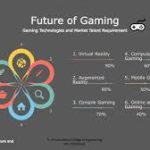Health Information Technology Degree Programs: A Comprehensive Guide
The health industry is continuously evolving with technological advancements, and the demand for skilled professionals to manage and support health information systems has grown significantly. Health Information Technology (HIT) degree programs equip students with the necessary skills and knowledge to ensure the proper management of health data and the use of technology in healthcare settings. This article provides an in-depth look into Health Information Technology degree programs, the career opportunities they open up, and the potential impact of this field on the healthcare industry.
1. Understanding Health Information Technology
Health Information Technology (HIT) refers to the systems and processes used to manage healthcare data and information. These systems include electronic health records (EHRs), health information exchanges, and various software applications designed to improve the accuracy, accessibility, and security of patient data.
HIT is integral to improving healthcare delivery, enhancing the efficiency of healthcare systems, and ensuring patient safety. It plays a vital role in ensuring that healthcare providers can access the correct data to make informed decisions about patient care. As healthcare becomes more digitized, the need for skilled HIT professionals is more important than ever.
2. Types of Health Information Technology Degrees
There are several degree options available for students interested in pursuing a career in Health Information Technology, ranging from associate degrees to advanced graduate degrees. Let’s explore the different types of HIT degrees:
A. Associate Degree in Health Information Technology
An associate degree in HIT is often the first step for many aspiring professionals in the field. It typically takes around two years to complete and provides foundational knowledge in areas such as:
- Medical terminology
- Health information management systems
- Electronic health records (EHR)
- Healthcare laws and ethics
- Health data analysis
- Coding and billing processes
This degree prepares graduates for entry-level positions, such as health information technicians, medical records technicians, or EHR specialists. Many associate degree programs are accredited by the Commission on Accreditation for Health Informatics and Information Management Education (CAHIIM), ensuring that students receive high-quality education that meets industry standards.
B. Bachelor’s Degree in Health Information Management
A bachelor’s degree in Health Information Management (HIM) provides a more in-depth education in the HIT field. This degree is ideal for students looking to advance their careers and take on more responsibilities in managing healthcare data and information systems.
Core courses in a bachelor’s degree program include:
- Data management and security
- Healthcare data analytics
- Information governance
- Health information technology project management
- Health informatics
Graduates with a bachelor’s degree often pursue roles such as health information managers, data analysts, compliance officers, or IT project managers in healthcare settings.
C. Master’s Degree in Health Informatics
For those seeking to specialize or move into leadership positions, a master’s degree in Health Informatics is an excellent option. This advanced degree focuses on the intersection of healthcare, information technology, and data science.
Master’s programs typically cover topics like:
- Advanced health informatics
- Data mining and predictive analytics
- Healthcare policy and technology management
- Clinical decision support systems
- Project management for healthcare IT
Graduates with a master’s degree in health informatics are well-equipped for roles such as health informatics consultants, chief information officers (CIOs), and directors of health information systems.
3. Curriculum and Coursework in HIT Programs
The curriculum for HIT degree programs combines courses in healthcare, information technology, and management. Here’s a breakdown of common courses found in HIT degree programs:
A. Medical Terminology and Anatomy
A fundamental course for HIT students, medical terminology, and anatomy provide the foundational language and knowledge needed to navigate the healthcare field.
B. Health Information Systems
Courses in health information systems teach students about the electronic systems used to manage healthcare data, focusing on how to implement, manage, and maintain EHR systems.
C. Coding and Classification Systems
Students learn about coding systems such as the International Classification of Diseases (ICD) and Current Procedural Terminology (CPT), both of which are used to code and classify medical data.
D. Data Analytics and Health Informatics
Data analytics courses teach students how to use data to improve healthcare delivery and patient outcomes. Health informatics courses delve into the use of information technology to optimize healthcare processes.
E. Healthcare Law and Ethics
Understanding healthcare laws and ethics is critical in HIT. These courses cover topics such as the Health Insurance Portability and Accountability Act (HIPAA), which governs the privacy and security of patient information.
4. Career Opportunities in Health Information Technology
Graduates of HIT programs have access to a wide range of career opportunities in various healthcare settings, such as hospitals, clinics, insurance companies, and government agencies. Some of the common roles include:
A. Health Information Technician
Health information technicians manage and organize health data, ensuring its accuracy, quality, and accessibility. They work closely with EHR systems and are responsible for maintaining patient records.
B. Medical Records Technician
Medical records technicians ensure that patient data is properly documented, classified, and stored. They are essential to the smooth operation of healthcare facilities and ensure that data is available when needed by healthcare providers.
C. Health Data Analyst
Health data analysts use data to improve patient outcomes and healthcare efficiency. They analyze trends, evaluate the effectiveness of treatments, and help hospitals make informed decisions based on data insights.
D. Compliance Officer
Compliance officers in healthcare ensure that their organizations follow all relevant laws, regulations, and ethical standards, particularly concerning data privacy and security.
E. Health Informatics Consultant
Health informatics consultants work with healthcare organizations to optimize their information systems and data management practices. They are often involved in implementing new technologies and improving workflows.
5. Certifications and Accreditation
Certifications and accreditation are key components of a successful HIT career. Many employers prefer or require certification, as it demonstrates a commitment to the profession and a certain level of expertise. Some of the most respected certifications in HIT include:
A. Registered Health Information Technician (RHIT)
Offered by the American Health Information Management Association (AHIMA), the RHIT certification is for those who have completed an associate degree in HIT and want to demonstrate their competence in the field.
B. Certified Health Data Analyst (CHDA)
Also offered by AHIMA, the CHDA certification is ideal for HIT professionals who want to specialize in health data analysis.
C. Certified Professional in Healthcare Information and Management Systems (CPHIMS)
This certification, offered by the Healthcare Information and Management Systems Society (HIMSS), is designed for those in management roles in HIT and is highly respected in the field.
6. The Future of Health Information Technology
The future of health information technology is promising, with rapid advancements in technology and an increasing reliance on data-driven healthcare solutions. The adoption of artificial intelligence (AI), machine learning, and big data analytics in healthcare is expected to drive demand for skilled HIT professionals who can manage and analyze complex healthcare data.
Additionally, the ongoing development of telemedicine and remote healthcare services is further contributing to the growth of HIT. As the healthcare industry becomes more digitized, the need for qualified HIT professionals will continue to rise.
7. Conclusion
Health Information Technology degree programs are a gateway to a rewarding and fast-growing field. Whether you pursue an associate degree, bachelor’s degree, or master’s degree, you’ll gain the skills needed to manage and analyze healthcare data, implement cutting-edge information systems, and ensure compliance with laws and regulations. With a range of career opportunities available, HIT graduates play a critical role in modern healthcare, ensuring that the industry continues to evolve in an increasingly digital world.


